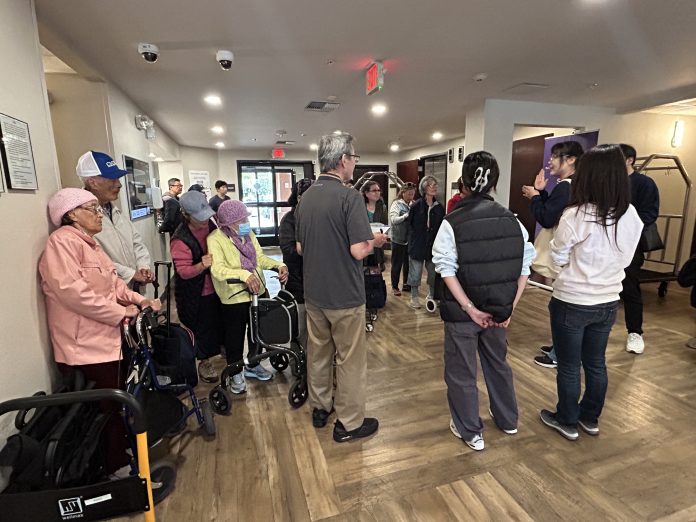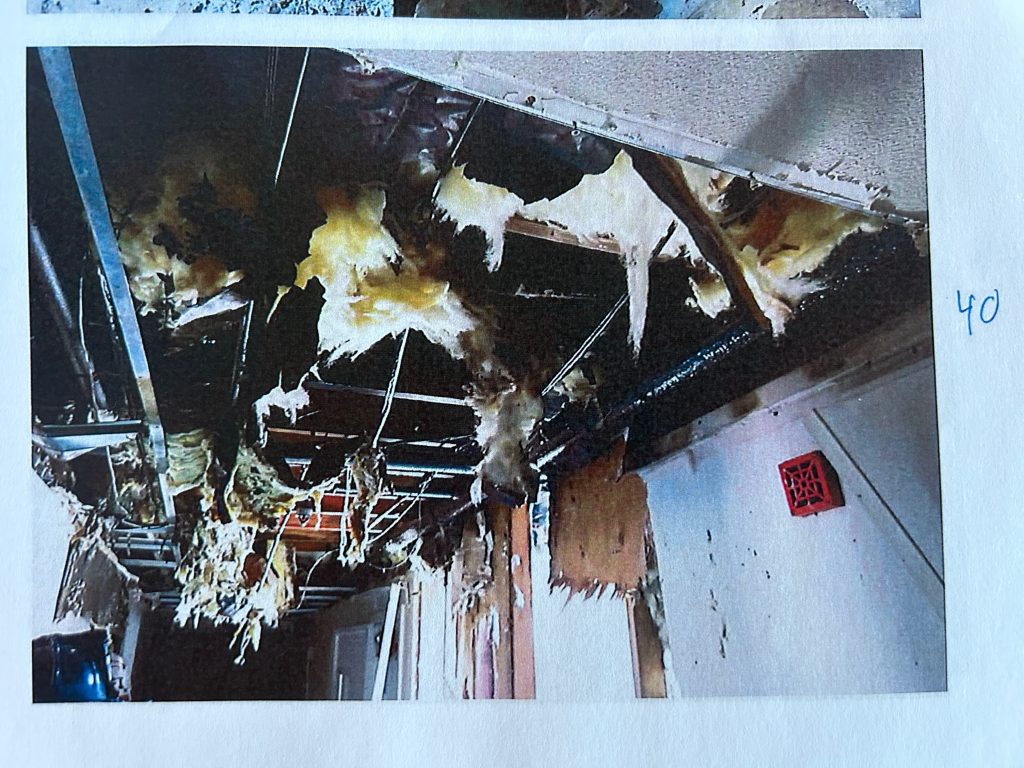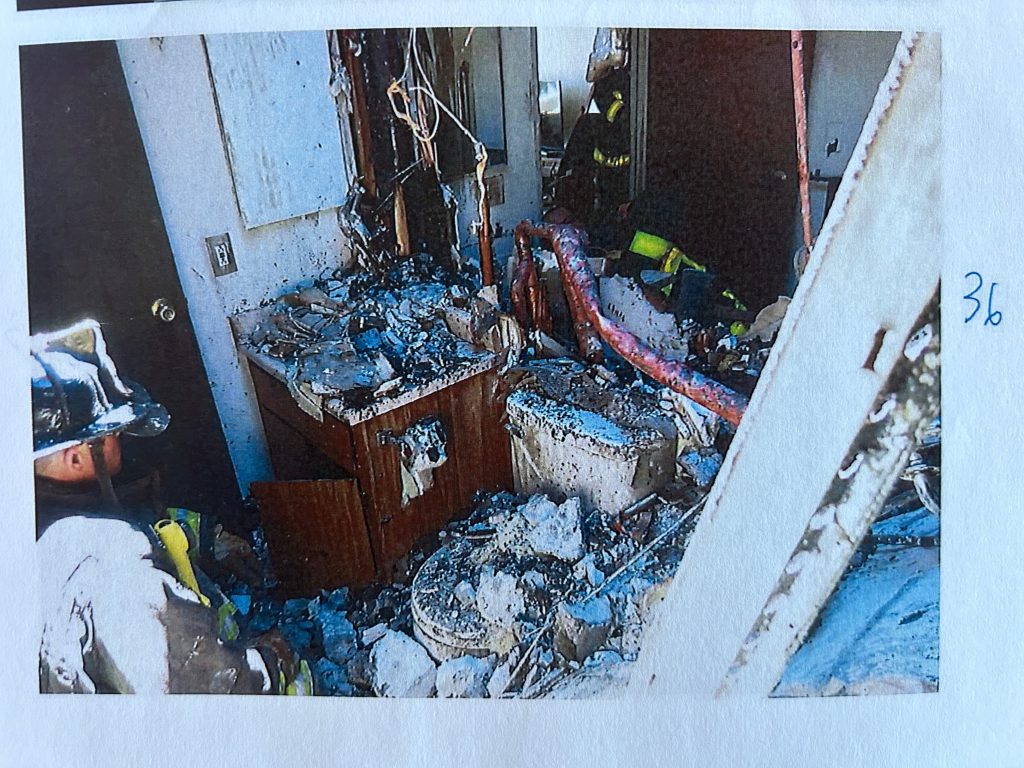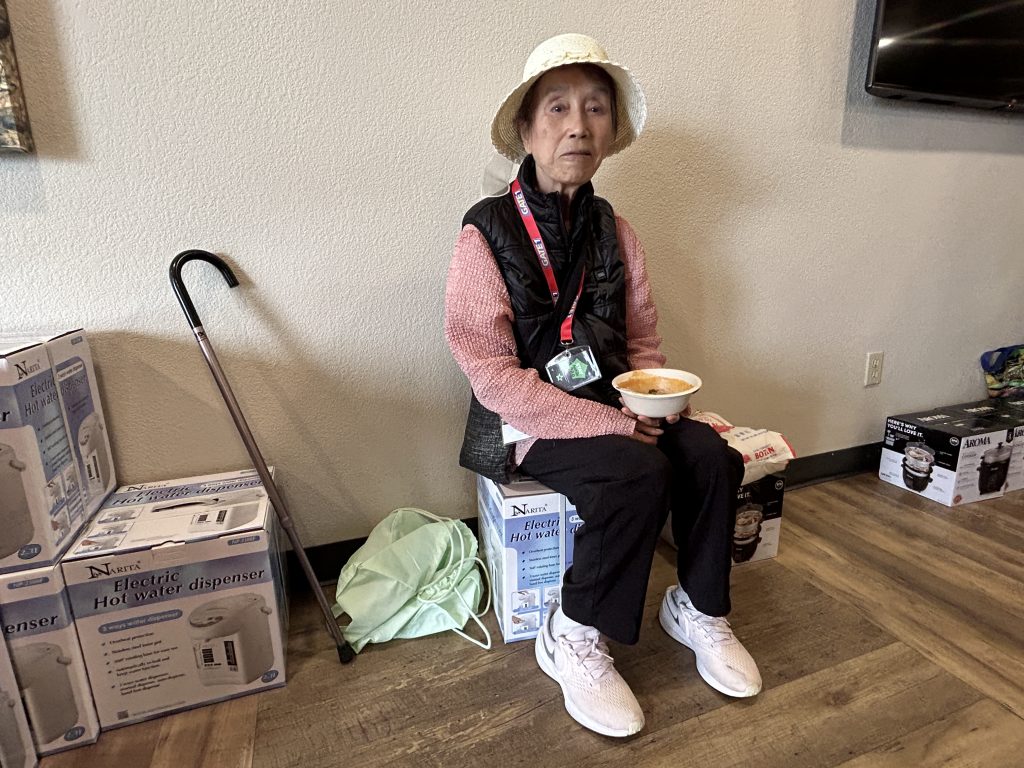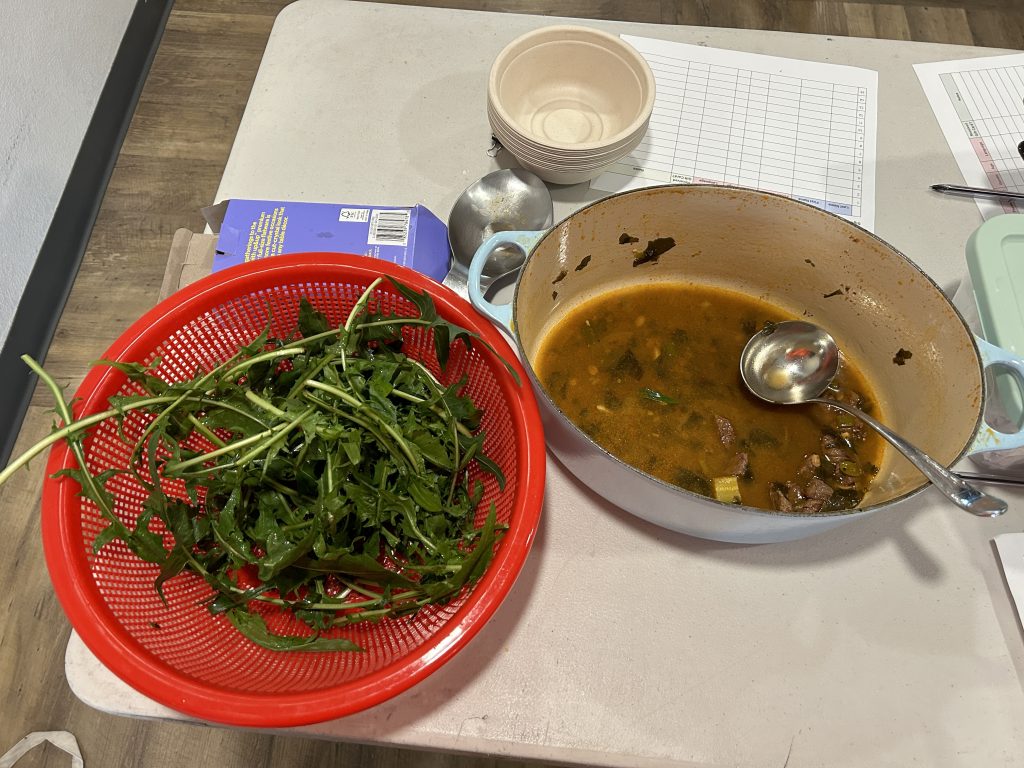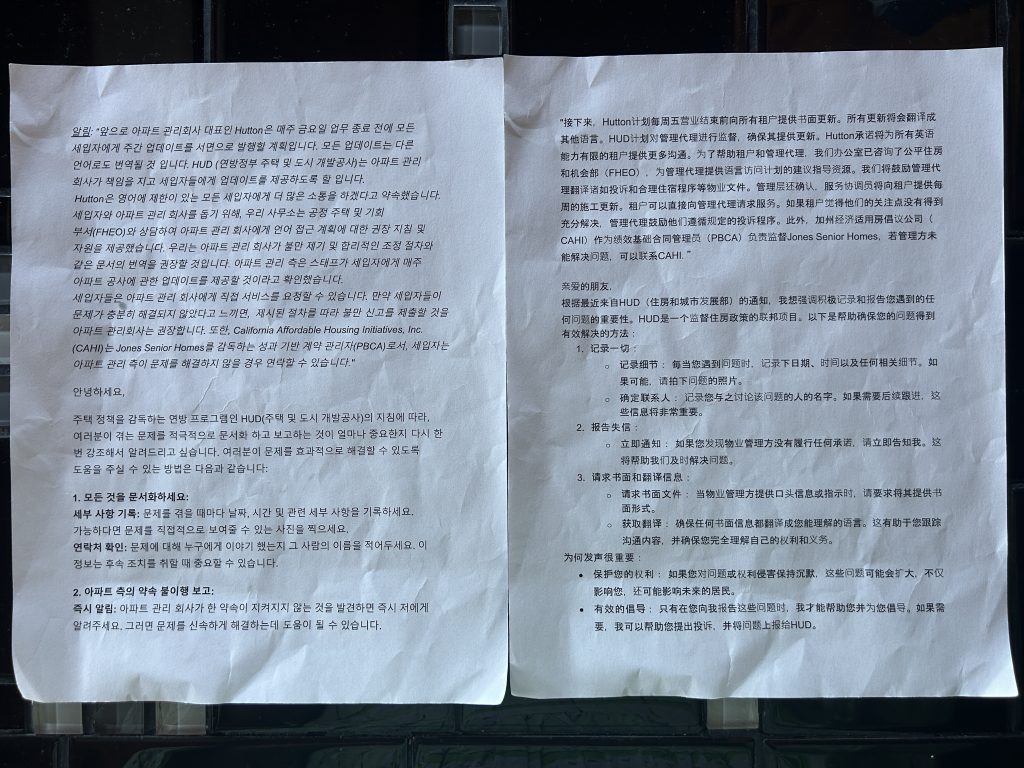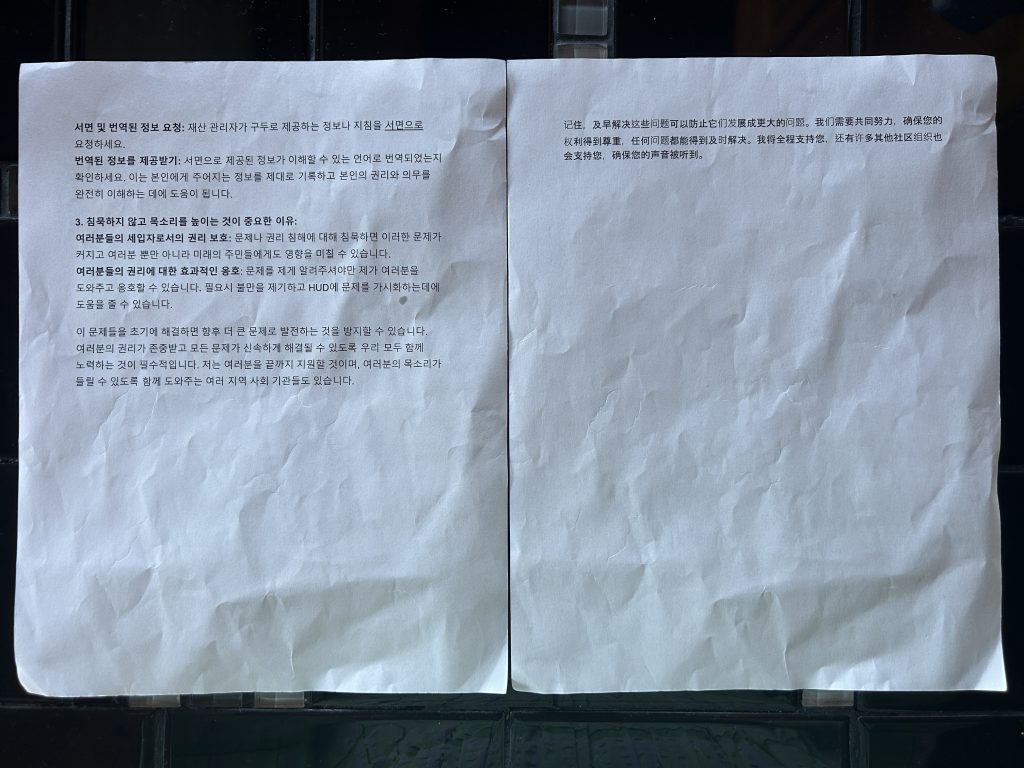By Jia H. Jung, California Local News Fellow

This project was supported by the USC Annenberg Center for Health Journalism, and is part of “Healing California,” a yearlong reporting Ethnic Media Collaborative venture with print, online and broadcast outlets across California.
After being displaced by a fire in May in the Jones Senior Homes apartment complex in San Francisco’s Japantown neighborhood, elderly residents, mostly Chinese and Korean speaking, lost their usual access to food, transportation, health care, and social networks.
Elders dependent upon temporary arrangements provided by Alton Corporation, their property management, found themselves in especially unfamiliar circumstances
Once aware of the community members in need, the nonprofits Asians Are Strong and Korean Community Center of the East Bay (KCCEB) came together to provide a range of culturally and linguistically accessible relief.
The workers, with the assistance of volunteers, quickly closed gaps in direct services, creating a model for rapid response the next time an emergency threatens the well-being of underserved Asian seniors in the Bay Area.
No meds, no family, 82 in the middle of calamity
Research by AARP as well as the American Red Cross and American Academy of Nursing shows that older adults are at significantly higher risk for negative health impacts and casualties in the wake of natural and man-made disasters such as fires and floods.
Reasons for the added vulnerability included physical fragility, reduced mobility, limited access to transportation, lack of finances, insufficient digital communication skills, and absence of personal support networks.
Long before the Jones Senior Homes fire, resident Oh Kyeong, 82, was used to smelling smoke in her building and hearing alarms. Every three to four months during the 11 years she lived in the complex, someone invariably left a yam for too long in the microwave or a pot of jjigae soy-paste stew bubbling on the stove after leaving the unit.
But that one fateful Friday in May, Oh recalled, “Alarms went off – not the ones in the rooms but the really big, red ones in the corridor that are enough to shake the whole building.”
After three fire trucks arrived and black smoke began seeping in through her windows, she opened her door to look out into the hallway.
“The hallway was worse,” she said. “That’s when I decided I had to get out – I thought, wow, this is a big fire.”
She threw a sweater over her shoulders, grabbed her purse, and left without her eyeglasses or dentures. She also left her medicines behind.
When first responders arrived, she told them: “Without medication, I will die tomorrow.” The American Red Cross provided her with a letter that enabled her to stock up on her life-saving medications at a Kaiser Permanente pharmacy nearby.
According to the fire investigation records from the San Francisco Fire Department, the Red Cross coordinated care for 102 seniors. Six residents sustained injuries, with two requiring hospital care.
Alton Corporation reported that 68 residents were living in 51-unit Building C before it caught on fire. The management relocated half of these residents, aged 71 to 104, to Extended Stay America in Alameda after their evacuation.
William “Billy” Hutton, director of Alton’s field operations, told AsAmNews in an email that the hotel was the only one in the Bay Area that agreed to accommodate the residents for such an indefinite period of time.
The hotel, located on an island south of Oakland, was far from home and walkable neighborhood resources.
“It’s unspeakable,” Oh said, waving her hand in exasperation when asked about transportation options. “You have to walk 20 minutes to try and catch a bus that comes once an hour.”
The remote location challenged the residents, several of whom used walkers or wheelchairs, and most of them who had limited English proficiency to navigate new transit systems.
“We’re the ones who had no family to take us in or lived too far away,” said Oh, whose entire family remains in Korea, in her home city of Busan.
S.O.S., translated
Zeien Cheung, one of the American Red Cross first responders and chair of the organization’s Bay Area-San Francisco leadership council, observed that the first popup local assistance center hosted by the emergency responders was poorly attended.
More people attended the second local assistance center, held at the same place, after Cheung incorporated in-language and transportation services.
When the initial emergency phase was over and the responsibilities of the Red Cross ceased, Cheung noticed that the seniors staying in Alameda still needed help.
Two of Alton’s service coordinators, responsible for assistance with social, health, education, transportation and wellness programs, occupied rooms in the Extended Stay hotel alongside the seniors. But they only spoke English, and numerous residents did not know the staff members were on site until months into their displacement.
After communicating with the residents directly and through interpreters, Cheung found that the seniors had little idea what resources were available to them.
When they had trouble consuming the Western foods from the Meals on Wheels service contracted by Alton, they just went hungry.
“We might think, oh my god, that’s so silly. At least you have food, why don’t you eat it? But if you think about it, it’s the first thing that can comfort them,” she said.
Additionally, while the hotel units featured kitchenettes and sinks, the displaced residents could not easily figure out how to get to the store to shop for ingredients or stock up on supplies to cook meals for themselves.
Cheung, who speaks English and Cantonese, and is the co-founder of the Asians Are Strong community safety and empowerment network, reached out to a pan-Asian network of multilingual volunteers.
One of her main contacts was through her friend Yeri Shon, associate director of the San Leandro-based Korean Community Center of the East Bay (KCCEB).
KCCEB, which serves Chinese and other Asian communities as well, began transporting the seniors to the grocery twice a week using a bus they had procured during the pandemic. On Thursdays, KCCEB and Asians Are Strong collaborated with the Moonstar Kitchen to provide culturally suitable, nutritious ready-to-eat meals for the seniors.
After conducting a social media campaign, the community responders further surprised the residents in early August with new water kettles and rice cookers, plus other in-kind donations from small businesses connected with local organizations like the Japantown Community Benefit District serving the three last Japantowns left in the U.S., and the Welcome Home Project assisting unhoused people in their transition out of homelessness.
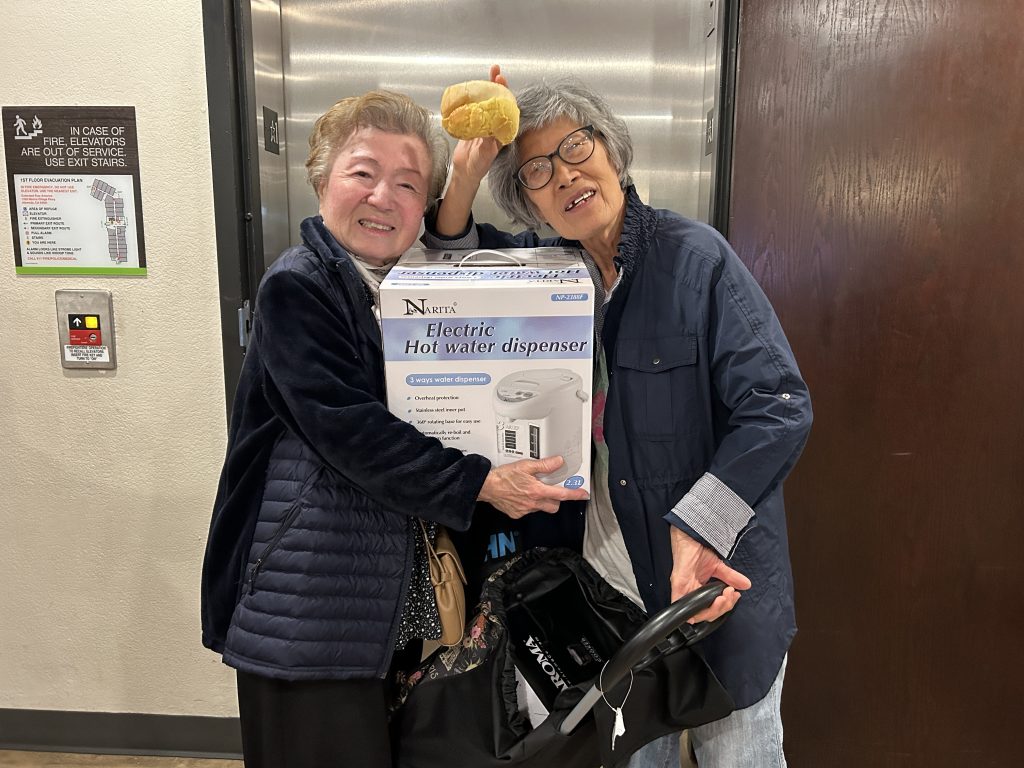
Resuming health care and social services after the aftermath
Helping seniors resume their access to health care and social services, and advocating for their overall interests and continued well-being, has been a longer-term project.
“Even for those of us who speak English well, we were like ‘Oh my god, they never pick up our calls,’” Shon said, referring to the process of doing something straightforward, like calling the social security department to obtain replacement EBT cards for seniors already enrolled in CalFresh food benefits.
A week or two after the fire, select residents were allowed to reenter their units in San Francisco to retrieve essential possessions like documents and identification. But they only had 30 minutes to decide what they needed, and space in the vehicles going back to Alameda was limited.
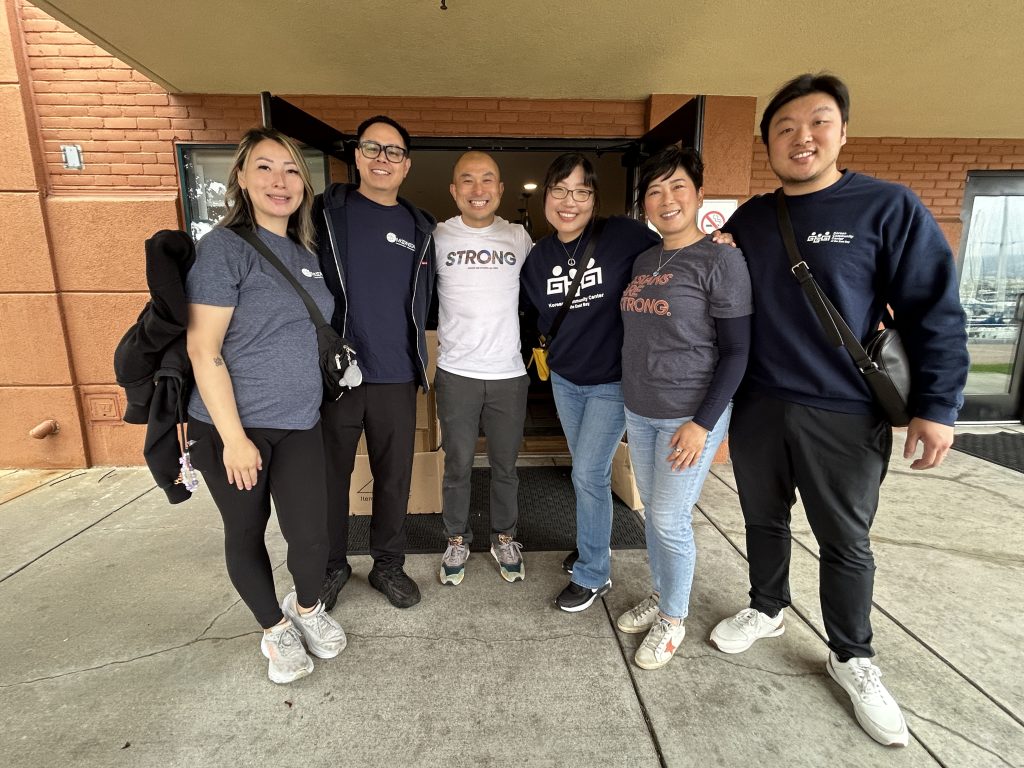
Doctors’ visits became more accessible after a donation from Compassion in Oakland, an organization seeking to keep the Asian American and Pacific Islander community safe, funded door-to-door car rides through services such as Lyft.
The seniors, however, told AsAmNews that they have not taken advantage of these services. Some of them mentioned feeling guilty for taking benefits. Others said that walking was their least painful way of travel, while others said that they were just waiting to return home before going back to their doctors.
Long journey home
In a writeup of their work, the Alton coordinators wrote, “We are amazed how some residents seem to embrace resilience and have a sense of hope while others had fallen into despair and hopelessness.”
They stressed that the chief need and desire of the displaced residents was to go back to their homes.
“It was crazy – it was a scramble,” KCCEB program manager Art Choi said, when recalling the first phase of the move back to AsAmNews. He described how the second floor residents being allowed back to their units had fewer than 48 hours of notice to pack up and clear the hotel premises. And the written announcement had been issued in English only.
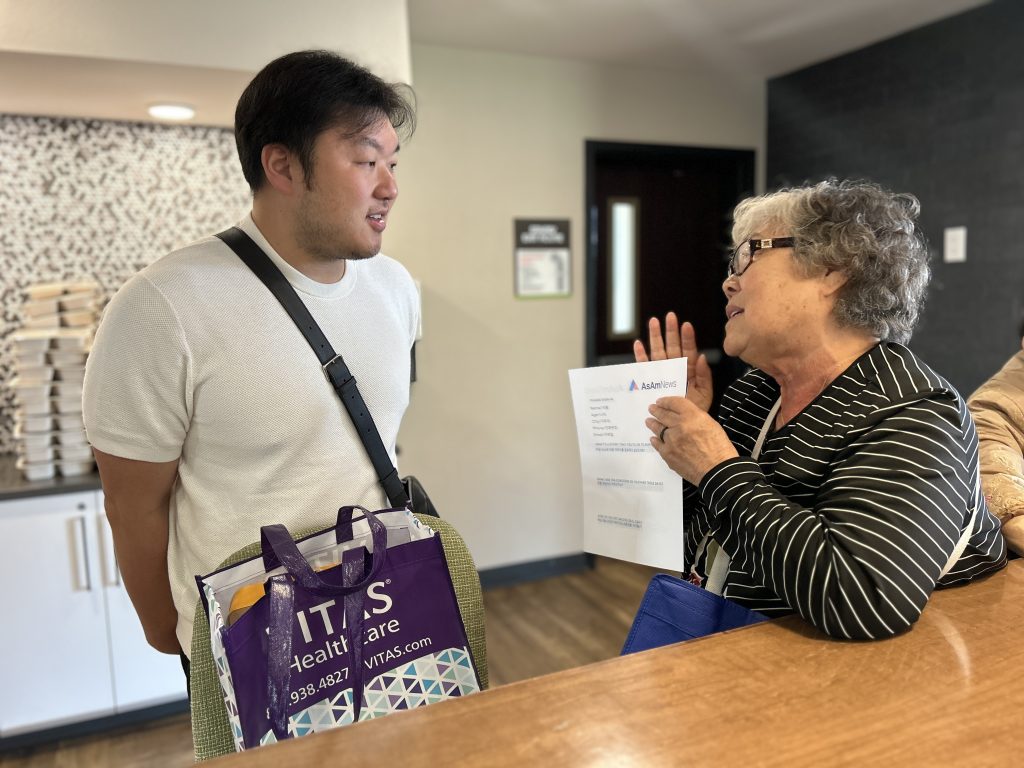
On move-out day, the limousine Alton provided for transportation did not have enough space for everyone’s belongings. KCCEB staff and members of the Asians Are Strong network personally transported the residents who had no family or friends to help them with their possessions. Others tried to stow their things in the rooms of residents who had to stay behind in Alameda, leaving the quandary of how to retrieve the items later.
One resident never made it back – he died after being taken to a medical facility, leaving behind a wife with Alzheimer Disease. Alton Corporation stated in writing that the man had had a pre-existing condition.
His neighbors said they only ever knew the lifelong Korean media journalist by the nickname daepyo, “our ambassador.” They shook their heads heavily with downcast eyes, depressed that his last months were lived in limbo, his last hours spent in chaos, and his last breaths drawn just shy of home.
“All these seniors were trying to use their walkers to put heavy boxes on to move stuff,” Choi said, recounting the physical burden and mental stress to the elders when no movers were present at the other end in San Francisco to help the elders settle back in or sort out items that they found had been removed, relocated, rearranged, or mixed with other residents’ property.
Concerned, Choi said that he encouraged residents to speak up more to their management about their needs going forward.
On Sept. 13, Alton Corporation’s Hutton distributed a letter of apology for the short notice for the move and promised to provide 5 to 10 days’ notice before the third and fourth-floor residents’ moving dates.
And after language access enforcement by the Department of Housing and Urban Development (HUD), the management also began issuing communications in English, Chinese, and Korean.
And Asians Are Strong and KCCEB brought in the Asian Law Caucus to provide advocacy for the next stages of the move-in and advocacy for everyone thereafter.
The next move-in was supposed to happen on Sept. 30. At the time of writing, the third and fourth-floor residents remained in Alameda nearly a month after this date.
Somebody to call next time
Prior to the fire, many of the seniors did not know about the organizations that ended up helping them. They hardly knew one another.
Ko Yong, 85 called Alameda 유배지 – yubaeji, a place of exile. But once volunteers began coming to Alameda to deliver necessities and advocate for medical care transportation, the lobby of the Extended Stay became abuzz with the opportunity to socialize and combat the negative mental health impacts of aging in a state of isolation, inactivity, and loneliness.
Recalling the days of his leadership in haninhoe Korean society organizations, Ko assigned himself as a kind of ringleader and spokesperson for the seniors, taking up collections of $10. When Shon and Choi asked why he was gathering the money, Ko replied that he wanted to pay for a thank you message in a Korean language newspaper to express the community’s gratitude to the organizations that worked behind the scenes to provide long-term rescue.
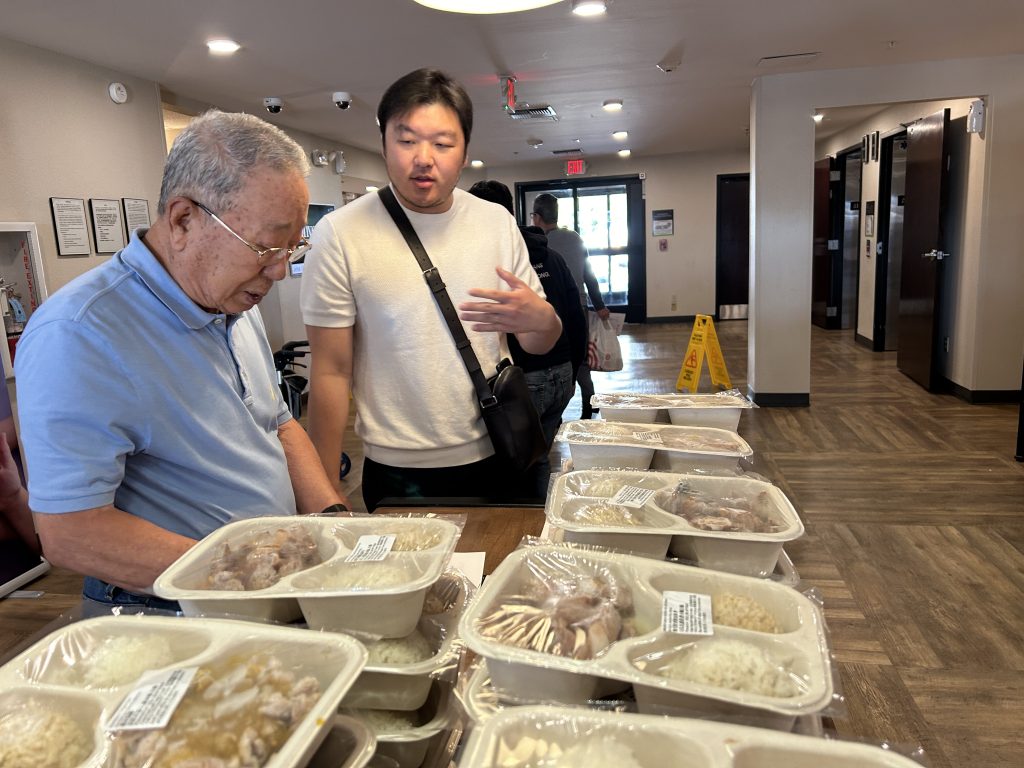
Weeks later, a group of ladies still waited to return to their homes. One woman shook her head at her peers’ complaints and said that things had been great and transportation had been easy. She expected everyone to go back to keeping to themselves once back in San Francisco.
Oh told her: “Your experience is different from mine.”
She said that she had felt depressed, lonely, and stuck in temporary housing. When Cheung invited her to an upcoming Asians Are Strong food event, Oh’s eyes sparkled.
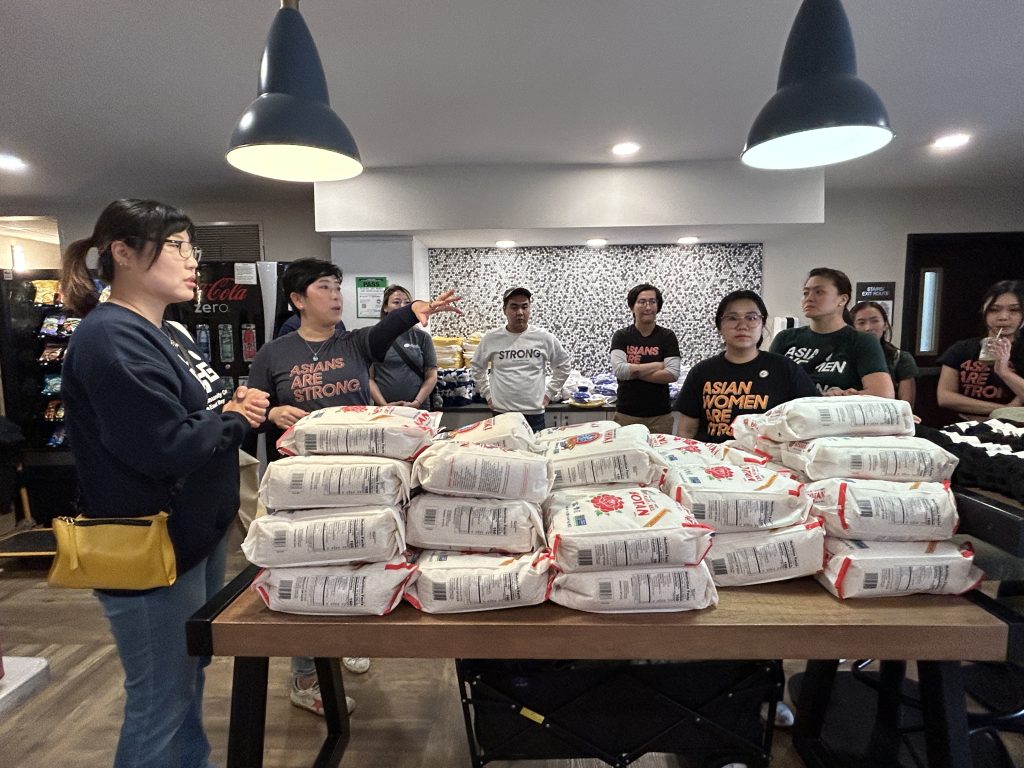
KCCEB and Asians Are Strong have recruited the Asian Law Caucus to support and oversee the rest of seniors’ transitions back home. Both organizations said that they will continue to be available to the seniors.
Cheung mentioned that the residents just need to remember they have someone to reach out to now if anything goes wrong.
In the meantime, she wants to enact the Red Cross’s recommendations for preventative mitigation of the disproportionately negative impact of disasters on seniors. She is thinking about how to integrate elements of the culturally attuned, comprehensive response to the Jones Senior Homes fire into post-disaster response protocols.
“If an earthquake happens right now, I’m not sure how many Asian communities know what to do, where to go,” Cheung said. “That’s the longer vision I have – combine the American Red Cross with a lot of other Asian communities so that you can provide in-language support and train other communities so that my community doesn’t miss out on certain things.”
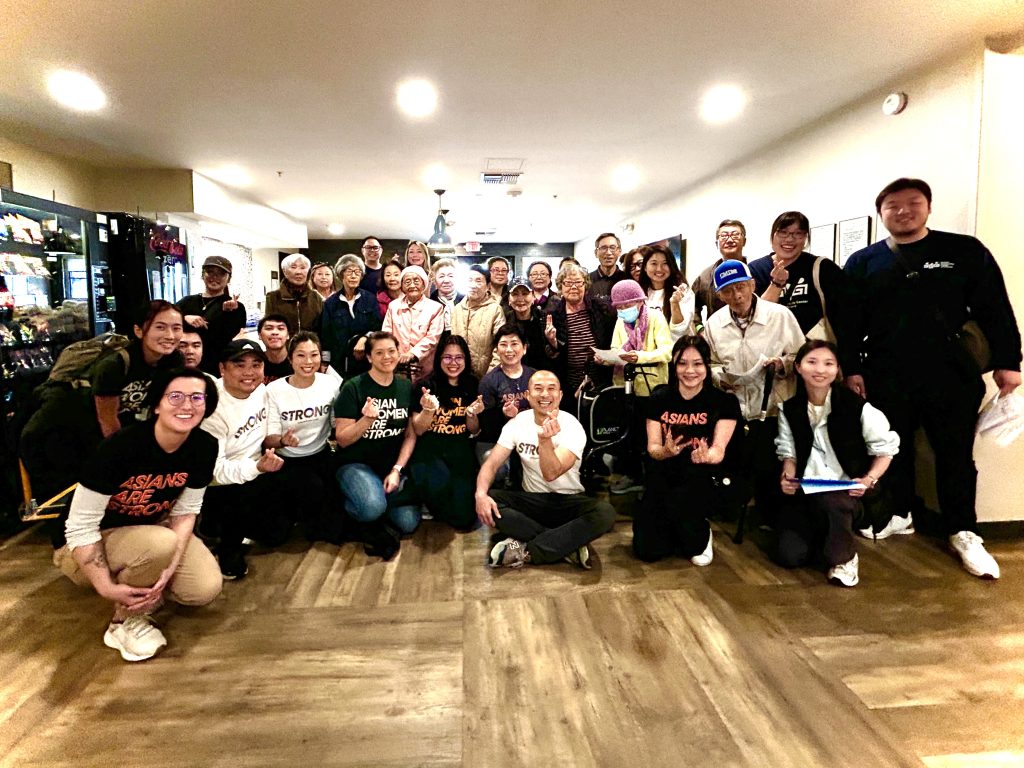
For help, contact KCCEB in Korean (한국어) at (844) 828-2254, in Chinese (廣東話/普通話) at (844) 828-5388, and in English at (510) 547 2662. Supporters can make a monetary donation to KCCEB.
To help Asians Are Strong continue to protect vulnerable seniors in the Asian and Pacific Islander community, donate to the organization’s causes, join its many events and initiatives, and volunteer. Speakers of all Asian languages are urgently needed.
The American Red Cross Bay Area Leadership Council rosters for Alameda, Contra Costa, and San Francisco County can be found here. The councils are responsible for integrating communities into Red Cross emergency responses.
AsAmNews is published by the non-profit, Asian American Media Inc.
We’re now on BlueSky. You can now keep up with the latest AAPI news there and on Instagram, TikTok, Facebook, YouTube and X.
We are supported by generous donations from our readers and by such charitable foundations as the Robert Wood Johnson Foundation.
You can make your tax-deductible donations here via credit card, debit card, Apple Pay, Google Pay, PayPal and Venmo. Stock donations and donations via DAFs are also welcomed.

